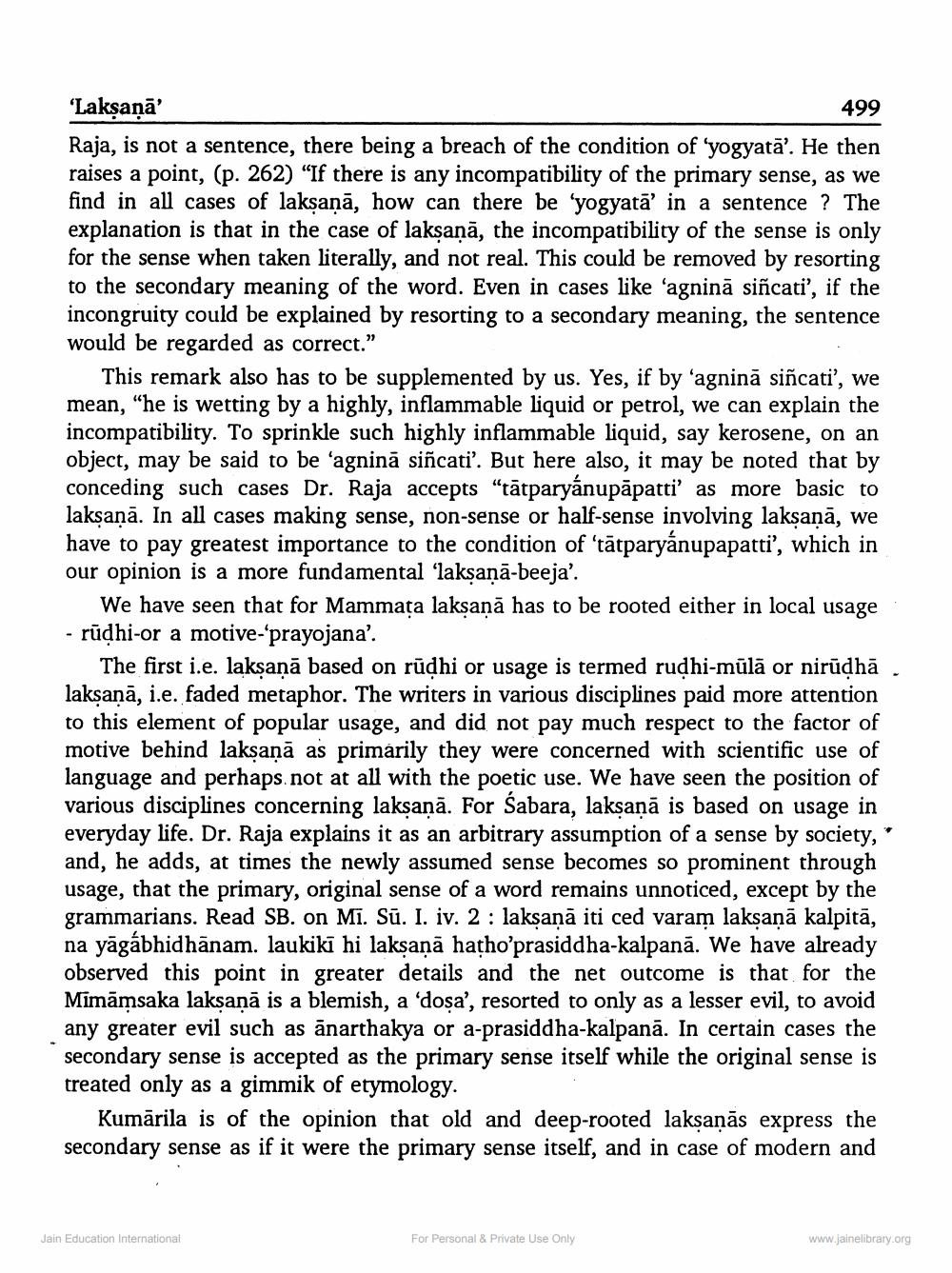________________
‘Laksaņā
499 Raja, is not a sentence, there being a breach of the condition of 'yogyatā'. He then raises a point, (p. 262) “If there is any incompatibility of the primary sense, as we find in all cases of laksanā, how can there be 'yogyatā' in a sentence ? The explanation is that in the case of lakṣaṇā, the incompatibility of the sense is only for the sense when taken literally, and not real. This could be removed by resorting to the secondary meaning of the word. Even in cases like 'agninā siñcati', if the incongruity could be explained by resorting to a secondary meaning, the sentence would be regarded as correct."
This remark also has to be supplemented by us. Yes, if by ‘agninā siñcati', we mean, “he is wetting by a highly, inflammable liquid or petrol, we can explain the incompatibility. To sprinkle such highly inflammable liquid, say kerosene, on an object, may be said to be 'agninā siñcati'. But here also, it may be noted that by conceding such cases Dr. Raja accepts “tātparyánupāpatti' as more basic to laksanā. In all cases making sense, non-sense or half-sense involving laksanā, we have to pay greatest importance to the condition of 'tātparyánupapatti', which in our opinion is a more fundamental 'laksaņā-beeja'.
We have seen that for Mammata laksanā has to be rooted either in local usage - rūdhi-or a motive-prayojana'.
The first i.e. laksaņā based on rūdhi or usage is termed rudhi-mūlā or nirūdhā. laksanā, i.e. faded metaphor. The writers in various disciplines paid more attention to this element of popular usage, and did not pay much respect to the factor of motive behind laksana as primarily they were concerned with scientific use of language and perhaps not at all with the poetic use. We have seen the position of various disciplines concerning laksanā. For Sabara, laksanā is based on usage in everyday life. Dr. Raja explains it as an arbitrary assumption of a sense by society," and, he adds, at times the newly assumed sense becomes so prominent through usage, that the primary, original sense of a word remains unnoticed, except by the grammarians. Read SB. on Mi. Sū. I. iv. 2 : laksanā iti ced varam laksanā kalpitā, na yāgábhidhānam. laukikī hi lakṣaņā hatho’prasiddha-kalpanā. We have already observed this point in greater details and the net outcome is that for the Mimāmsaka laksanā is a blemish, a dosa', resorted to only as a lesser evil, to avoid any greater evil such as anarthakya or a-prasiddha-kalpanā. In certain cases the secondary sense is accepted as the primary sense itself while the original sense is treated only as a gimmik of etymology.
Kumārila is of the opinion that old and deep-rooted laksanās expr secondary sense as if it were the primary sense itself, and in case of modern and
Jain Education International
For Personal & Private Use Only
www.jainelibrary.org




